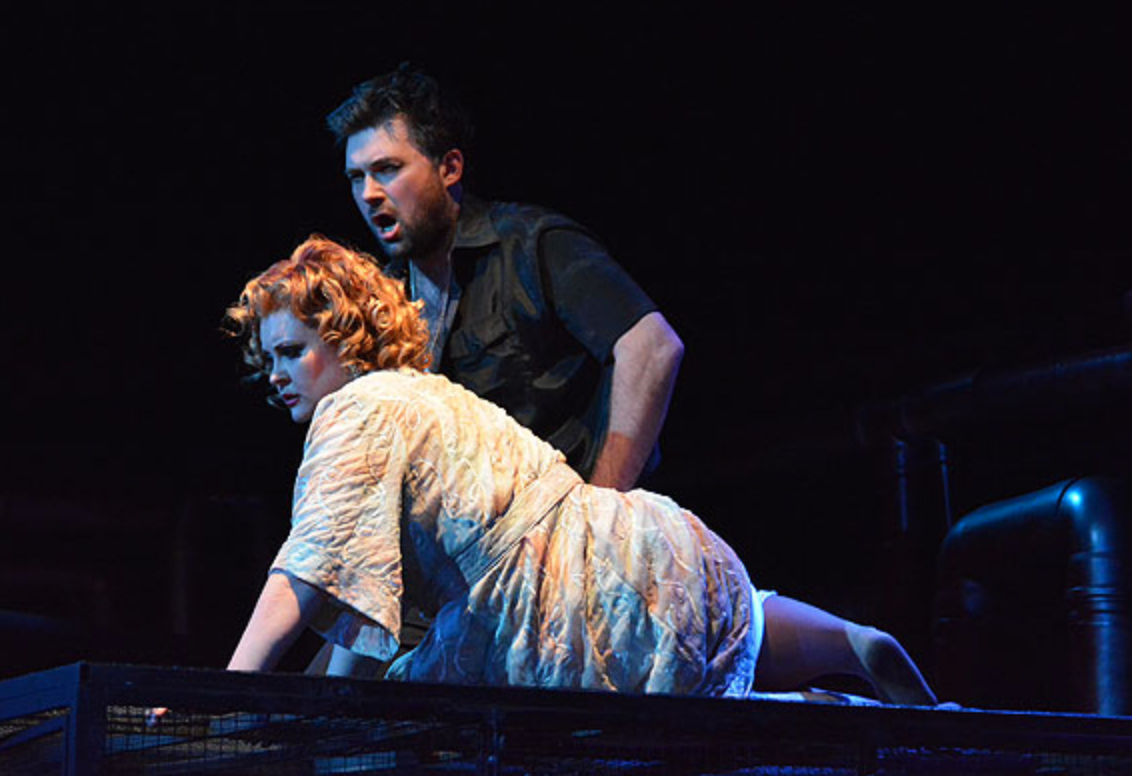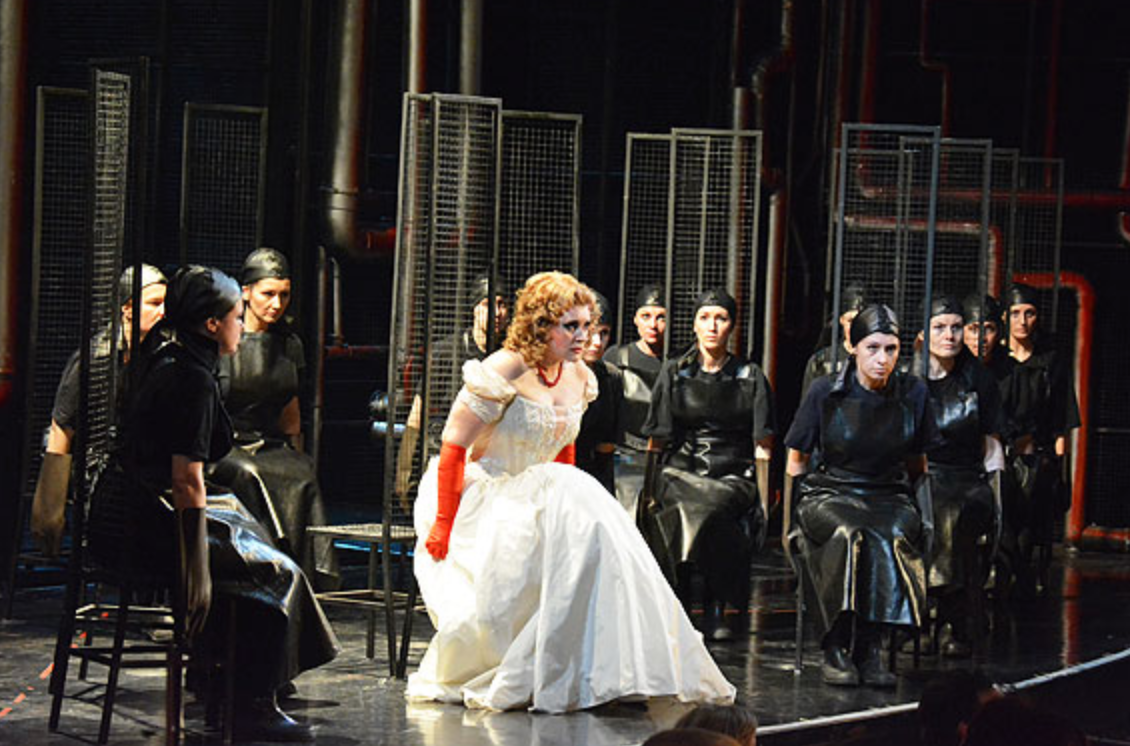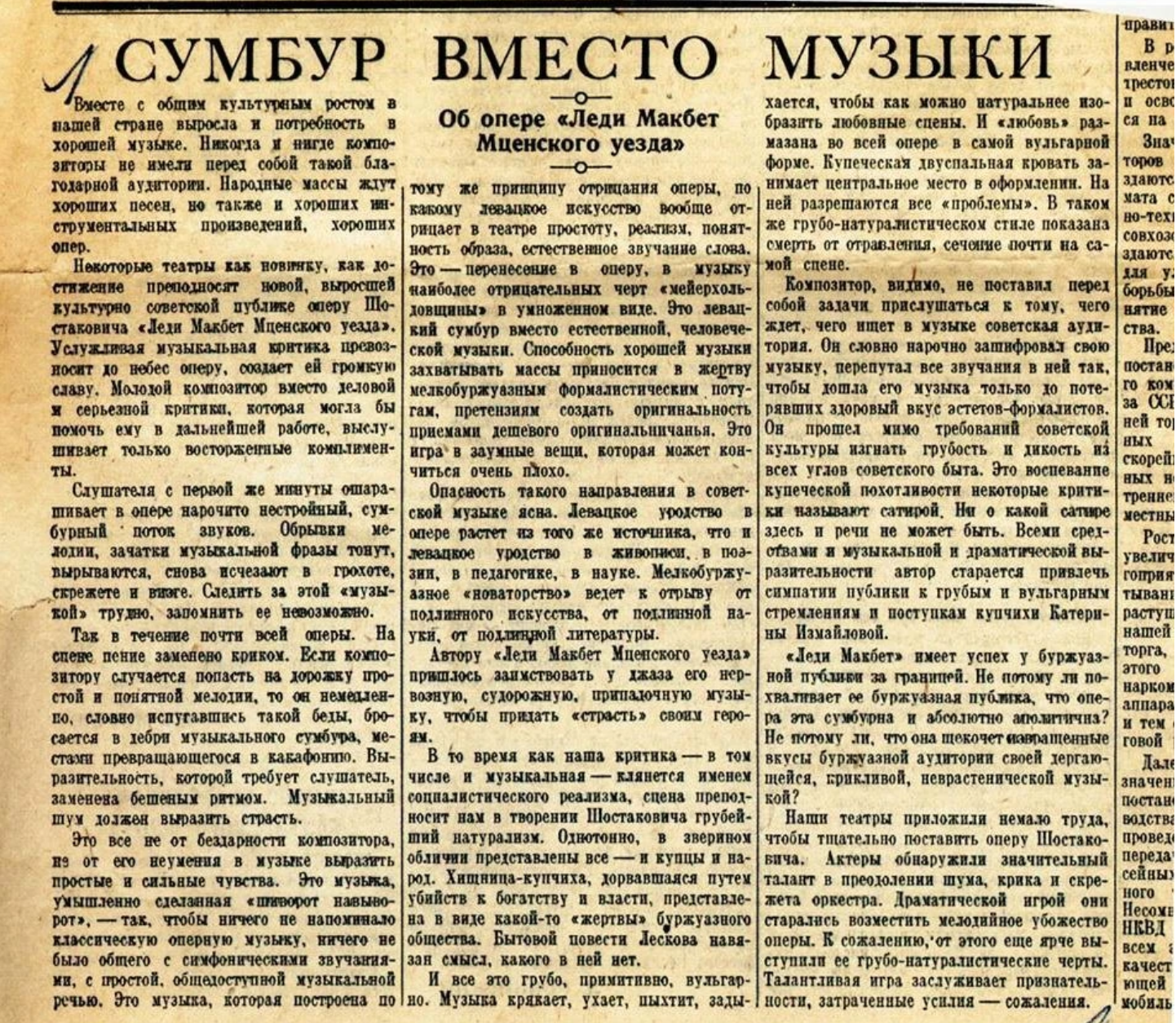“This music is built on the basis of rejecting opera – the same basis on which 'Leftist' Art rejects in the theatre simplicity, realism, clarity of image... And all this is coarse, primitive and vulgar. The music quacks, grunts, and growls, and suffocates itself… It is a game of clever ingenuity that may end very badly.”
~ Chaos Instead of Music (Pravda)
LADY MACBETH OF THE MTSENSK DISTRICT
In 1934, Shostakovich released Lady Macbeth of the Mtsensk District, a new opera based on the story by Nikolai Leskov. The opera takes place in the 19th century and criticizes the czarist Russian society. Centered around a young woman named Katerina Izmailova, who finds herself caught up in an affair while her husband is out of town, “audiences were to understand that she [Katerina] was an innocent victim of her sordid bourgeois surrounding” (The Murders of Mzensk (TIME)).

(Courtesy of Helikon)

(Courtesy of Helikon)

(Courtesy of Helikon)
The opera, with its three murders and graphic sexuality, quickly became a hit and within two years was being performed around the world.
“...Lady Macbeth of Mtsensk, introduced to the U. S. in 1935, had become the rage of Manhattan's intellectuals.”
~ The Murders of Mzensk (TIME)

(Courtesy of Helikon)
Stalin and other Soviet officials attended the January 26, 1936 performance of the opera, but stomped out of the theater in disgust halfway through the show. Two days later, an article titled “Chaos Instead of Music” appeared in the official newspaper of the Central Committee of the Communist Party, Pravda, denouncing the opera.

Pravda article: "Chaos Instead of Music" (Courtesy of The New York Times).
Shostakovich became an “enemy of the people,” shunned by the public and his friends, left fearing for his life. Under Stalin's "socialist realism" policy, even an opera with pro-communist themes was criticized for not sounding "Russian" enough, putting Shostakovich in a life-threatening situation.